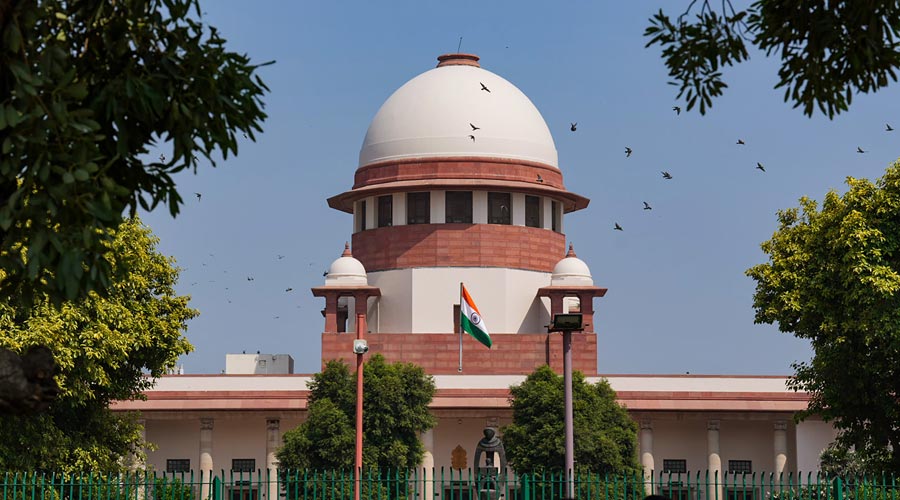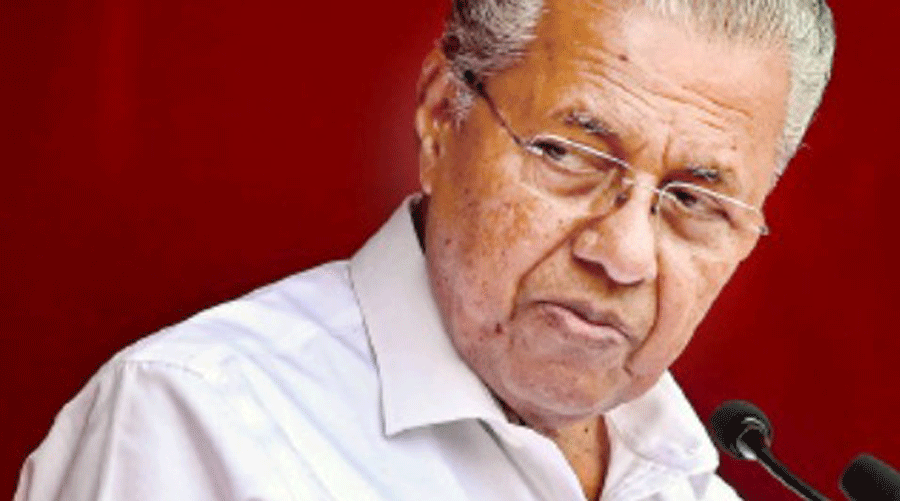The Supreme Court on Friday decided to form an expert committee to probe the Hindenburg Research report’s allegations against the Adani group, rejecting the Centre’s plea to constitute a panel with names the government had suggested in a sealed-cover report.
“We want to ensure transparency. In case we take your government’s suggestions, from sealed cover, it automatically means the other party (petitioners seeking a probe) won’t know and people will think it is a government-appointed committee,” Chief Justice of India D.Y. Chandrachud told solicitor-general Tushar Mehta.
The court, however, refused to “start with a presumption” that regulatory agencies like the Securities and Exchange Board (Sebi) had failed to act on purported share market manipulation and accounting fraud by Adani, as alleged in the Hindenburg report.
“We can’t start with a presumption of regulatory failure,” the bench, which included Justices P.S. Narasimha and J.B. Pardiwala, told advocate Prashant Bhushan, who was representing one among the batch of four petitioners.
Justice Chandrachud declined a plea from the petitioners to appoint a sitting Supreme Court judge to probe the allegations, saying he had no judges to spare.
The bench underlined that contrary to Sebi’s claim that the Hindenburg report had had no visible impact on the stock market, investors had said they had lost lakhs of crores of rupees.
“Mr Mehta, you have submitted a sealed-cover report suggesting the names of the committee members. We would rather not accept the sealed-cover suggestions,” Justice Chandrachud said.
Mehta argued the government had suggested the names since it wanted to protect the interests of the investors. But Justice Chandrachud reiterated: “There has to be full confidence in the committee for the other side (petitioners) and the public. So, what we will do is that we will form a committee on our own, so that there is a sense of confidence in the committee.”
Mehta then said he had no objections to the court’s decision. The court later reserved its order on the constitution of the committee.
The first petition, filed by advocate Manohar Lal Sharma, seeks a probe and the registration of criminal cases against Hindenburg Research founder Nathan Anderson for allegedly using his short-selling strategy to create havoc in the stock market.
The second petition, moved by advocate Vishal Tiwari, seeks a judicial probe into the Hindenburg allegations and the fixing of accountability on anyone found guilty of malpractice.
The third, moved by Madhya Pradesh Mahila Congress leader Jaya Thakur, wants the LIC and the State Bank of India (SBI) investigated for possible connivance with the Adani group.
The fourth, moved by Anamika Jaiswal, who is represented by Bhushan, wants the following issues examined by the court-appointed committee:
- Whether the allegations in the Hindenburg report are true.
- Whether the various listed Adani group of companies exceed the limit of 75 per cent of promoter holding
- What the sources of funds are for the shell companies allegedly used to invest large sums in the shares of Adani group companies
- Whether there has been corruption/ regulatory failure in dealing with insider trading and unfair trade practices in the securities market; and what measures are needed to strengthen regulatory institutions and fix responsibility
- Whether the LIC has prudential norms on selling shares and booking profits, and whether it followed these norms in relation to the Adani group
- Whether the LIC and others were used for the warehousing of Adani shares to facilitate price manipulation of the shares.
- Whether State-owned banks should be allowed to advance loans to listed companies on the basis of pledging their shares
- Whether there should be a transparent monitoring system for trading and price movement in relation to large listed companies that have the resources to play the corner in the market and inflate the prices of their shares, and then use these prices to borrow and promote other companies in the group.












